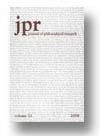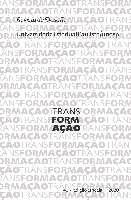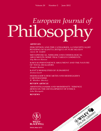
Enrahonar-Quaderns de Filosofia
Scope & Guideline
Nurturing vibrant discussions in the world of ideas.
Introduction
Aims and Scopes
- Interdisciplinary Philosophy:
The journal emphasizes an interdisciplinary approach, integrating philosophy with fields such as political theory, aesthetics, and sociology to explore complex contemporary issues. - Critical Theory and Social Critique:
A core focus is on critical theory, particularly the works of influential philosophers such as Slavoj Žižek, Michel Foucault, and Walter Benjamin, analyzing their relevance to modern societal challenges. - Ethics and Human Enhancement:
The journal delves into ethical discussions surrounding human enhancement technologies, exploring moral implications and societal impacts of advancements in genetic and artificial intelligence. - Political Philosophy and Representation:
It examines themes of representation in politics, particularly through lenses of feminism, decolonial thought, and critiques of neoliberalism, contributing to ongoing debates about identity and power dynamics. - Aesthetic Experience and Philosophy of Art:
The journal explores the philosophical dimensions of art and aesthetics, investigating how they inform human experience and societal values. - Philosophy of Technology:
A significant area of inquiry involves the philosophy of technology, particularly the implications of technological progress on human identity and societal structures.
Trending and Emerging
- Genetic and Technological Enhancements:
There is a marked increase in discussions surrounding genetic enhancement and emerging technologies, indicating a growing concern with ethical implications and the societal impact of these advancements. - Political Representation and Feminism:
The journal is increasingly focusing on themes of political representation, particularly through feminist and decolonial lenses, as societies grapple with issues of identity, power, and justice. - Philosophy of Crisis and Contemporary Events:
Emerging themes include the philosophical analysis of crises, such as those triggered by the COVID-19 pandemic, emphasizing the relevance of philosophy in understanding and responding to contemporary challenges. - Critical Engagement with Neoliberalism:
There is a rising trend in critiquing neoliberal ideologies, with a focus on how these frameworks shape societal structures, ethics, and individual identities. - Intersections of Aesthetics and Politics:
The exploration of how aesthetic experiences intersect with political discourse is gaining traction, reflecting a broader interest in the role of art and culture in shaping social and political realities.
Declining or Waning
- Traditional Metaphysics:
Discussions centered on classical metaphysics and ontological questions have seen a decline, with fewer papers engaging with these themes compared to the past. - Historical Philosophical Figures:
While historical figures like Nietzsche and Hegel have been extensively covered, there seems to be a reduction in papers focusing solely on their doctrines without connecting to contemporary issues. - Purely Abstract Philosophical Concepts:
There is a noticeable decrease in works that engage with abstract philosophical concepts devoid of practical application or contemporary relevance, signaling a shift towards more applied philosophy. - Philosophy of Language:
The exploration of language philosophy, particularly in the context of analytic philosophy, appears to be less frequent, with more emphasis placed on political and ethical implications of language rather than its structure. - Philosophical Pedagogy:
The exploration of philosophical education and pedagogy has diminished, with fewer articles addressing how philosophy is taught and learned in contemporary contexts.
Similar Journals

Teoria-Rivista di Filosofia
Exploring the Frontiers of Philosophical ThoughtTeoria-Rivista di Filosofia is a distinguished academic journal published by EDIZIONI ETS, based in Pisa, Italy. With a focus on philosophical discourse, this journal is a valuable resource for researchers, professionals, and students in the field of philosophy. Having achieved a commendable Q3 ranking in the 2023 category quartiles, Teoria stands out in the competitive landscape of philosophy journals, with a Scopus rank of #612 out of 806, placing it in the 24th percentile. Although currently classified as a non-open access publication, it frequently addresses cutting-edge themes and challenges within philosophical research, promoting rigorous analysis and diverse perspectives. The journal spans various topics across multiple issues from its inception in 2011 to its ongoing publications scheduled through 2024, making it a relevant venue for contemporary philosophical inquiry. The journal aims to foster scholarly communication and stimulate critical debates, contributing significantly to the global philosophical landscape.

Sguardo-Rivista di Filosofia
Advancing Scholarly Engagement in Philosophy and Social InquirySguardo-Rivista di Filosofia, published by EDIZIONI STORIA & LETTERATURA, serves as a significant forum for interdisciplinary discourse in the realms of philosophy, political science, and history. With the ISSN 2036-6558 and open access since 2010, this esteemed Italian journal fosters an inclusive academic environment, making its rich content widely accessible to researchers, professionals, and students alike. Although currently positioned in the Q4 quartile across various scholarly fields, including Philosophy and Political Science, it offers critical insights that encourage discourse and spark scholarly engagement. The journal's commitment to promoting innovative philosophical dialogue plays an essential role in shaping contemporary thought, making it a valuable resource for those pursuing advanced studies or conducting research in these domains. Join the growing community that values rigorous academic discussion through Sguardo-Rivista di Filosofia, where every article contributes to the evolution of contemporary philosophical and social inquiry.

TIJDSCHRIFT VOOR FILOSOFIE
Pioneering Scholarly Excellence in PhilosophyTIJDSCHRIFT VOOR FILOSOFIE is a distinguished academic journal published by Peeters, dedicated to advancing critical discourse in the field of philosophy. Established in Belgium, this journal has been a platform for rigorous intellectual exploration since its inception. Recognized in 2023 within the Q4 category in Philosophy and ranked #721 out of 806 in Scopus’ Arts and Humanities division, it serves as a forum for researchers, professionals, and students to engage with contemporary philosophical debates and issues. Though not an Open Access journal, it provides a comprehensive collection of articles that contribute to the understanding and evolution of philosophical thought. With a commitment to scholarly excellence, TIJDSCHRIFT VOOR FILOSOFIE continues to foster a vibrant academic community, encouraging contributions that challenge, inform, and refine philosophical inquiries.

Journal of Philosophical Research
Cultivating a Rich Repository of Philosophical IdeasThe Journal of Philosophical Research, published by the PHILOSOPHY DOCUMENTATION CENTER, stands as a significant conduit for scholarly dialogue in the field of philosophy. With the ISSN 1053-8364 and E-ISSN 2153-7984, this journal has been instrumental in fostering academic discourse from its inception in 2002. Although not open access, it maintains a robust reputation, evidenced by its Q3 ranking in the philosophy category for 2023 and a commendable position in the Scopus Ranks (Rank #287 out of 806) reflecting the journal's impact factor in the arts and humanities. The journal's rigorous selection process ensures the publication of high-quality, peer-reviewed articles covering a broad spectrum of philosophical inquiries, making it an essential resource for researchers, professionals, and students alike. Situated in Charlottesville, Virginia, it exemplifies the commitment to advancing philosophical understanding and scholarship, while serving as a valuable repository of contemporary philosophical thought.

Trans-Form-Acao
Unlocking New Perspectives on Philosophical IssuesTrans-Form-Acao is a prominent Open Access journal published by UNESP-MARILIA, dedicated to the field of Philosophy. Since its inception in 1974, the journal has fostered a vibrant academic discourse within the humanities, encouraging scholars to share innovative ideas and critical analyses. With an ISSN of 0101-3173 and an E-ISSN of 1980-539X, it has gained significant recognition in Scopus, ranking #285 out of 806 in the Arts and Humanities category, placing it in the 64th percentile for philosophy journals (2023). The journal's commitment to accessibility and rigorous scholarship has positioned it within the Q3 quartile, reflecting its growing influence and esteem in philosophical studies. Scholarly contributions are welcome across a range of philosophical topics, making it an essential resource for researchers, professionals, and students alike who seek to engage with contemporary philosophical thought. For further details, please refer to their address at AV HYGINO MUZZI FILHO, 737, MARILIA, SP 17525-900, BRAZIL.

Ideas y Valores
Cultivating Ideas for a Richer Academic LandscapeIdeas y Valores is a distinguished academic journal published by the Universidad Nacional de Colombia, Facultad de Ciencias Humanas, focusing on the dynamic field of philosophy. Established in 1951, it has been a crucial platform for philosophical discourse in Latin America and widely accessible as an Open Access publication, promoting the free exchange of ideas. The journal addresses various philosophical themes, fostering interdisciplinary dialogue and enriching the academic landscape. With its ISSN 0120-0062 and E-ISSN 2011-3668, Ideas y Valores has been recognized with a Q4 ranking in the Scopus category of Philosophy, positioned within the 13th percentile among similar titles. Its contributions remain vital for researchers, professionals, and students seeking to deepen their understanding of philosophical concepts and engage with current debates. The journal's commitment to originality and relevance ensures it remains a pivotal resource within its field.

Themata-Revista de Filosofia
Cultivating a Global Discourse in PhilosophyThemata-Revista de Filosofia is an esteemed academic journal published by UNIV SEVILLA, EDITORIAL, dedicated to the exploration and dissemination of philosophical thought and inquiry. With a commitment to Open Access since 2008, it provides researchers, professionals, and students free access to high-quality, peer-reviewed articles that contribute significantly to the global discourse in philosophy. The journal aims to foster intellectual dialogue and engagement by presenting diverse perspectives across various philosophical disciplines, making it an essential resource for scholars seeking to deepen their understanding of philosophical issues. The ISSN 0212-8365 and E-ISSN 2253-900X ensure wide dissemination and accessibility, positioning Themata as a vital component of contemporary philosophical literature. Located in Seville, Spain, the journal also emphasizes its role in promoting philosophical studies within the European academic community.

Claridades-Revista de Filosofia
Nurturing Innovative Insights in PhilosophyClaridades-Revista de Filosofia is a distinguished open-access journal dedicated to the exploration of philosophical thought and discourse, published by the ASOC PROMOCION FILOSOFIA & CULTURA MALAGA-FICUM. Since its inception in 2009, the journal has been committed to providing a platform for innovative philosophical research and insights, fostering engagement within the academic community and beyond. Based in the culturally rich city of Malaga, Spain, the journal caters to the diverse landscape of philosophical inquiry, with a focus on nurturing academic exchange globally. Although the journal currently holds a Q4 ranking in Philosophy according to Scopus, it aims to elevate its impact and contribute significantly to contemporary philosophical debates. Researchers, professionals, and students alike will find a wealth of thought-provoking articles and discussions that not only enrich their understanding of the discipline but also encourage critical dialogue about the pressing philosophical issues of our time. With its dedicated mission and open access model, Claridades is poised to be an essential resource for anyone invested in the vibrant and evolving field of philosophy.

EUROPEAN JOURNAL OF PHILOSOPHY
Unveiling the complexities of philosophy with rigorous scholarship.European Journal of Philosophy, published by Wiley, stands as a premier academic journal in the field of philosophy, recognized for its rigorous scholarship and impactful contributions. With an impressive Q1 ranking in Philosophy as noted in the 2023 category quartiles, the journal places within the top echelons of its field, reflecting its commitment to advancing philosophical discourse. Covering a broad spectrum of philosophical topics, the European Journal of Philosophy features peer-reviewed articles that engage both contemporary discussions and foundational theories, making it an invaluable resource for researchers, professionals, and students alike. The journal's accessibility to readers in the United Kingdom and beyond ensures a wide dissemination of knowledge, fostering an international dialogue that enriches philosophical inquiry. With a convergence of intellectual contributions since 1993, the journal continues to push the boundaries of philosophical thought into 2024 and beyond.

Pensando-Revista de Filosofia
Engaging Minds, Inspiring ChangePensando-Revista de Filosofia, an esteemed publication by UNIV FEDERAL PIAUI, EDITORA, serves as a vibrant platform for philosophical discourse and exploration, anchoring its significance within the field of philosophy. With the ISSN 2178-843X, this journal aims to promote critical thinking and disseminate innovative ideas that advance the study of philosophical theories, contemporary issues, and interdisciplinary approaches. Although it currently operates under non-open access terms, researchers and scholars can look forward to insightful articles that contribute to enriching the philosophical landscape. The journal is nestled in Bom Jesus, Piauí, Brazil, and welcomes submissions that engage with both traditional philosophical frameworks and contemporary dilemmas, encouraging a diverse array of perspectives. With a commitment to academic rigor and an aim to inspire both professionals and students alike, Pensando stands as a crucial resource for anyone eager to deepen their understanding of philosophy and its relevance in today's world.